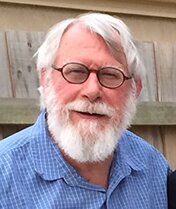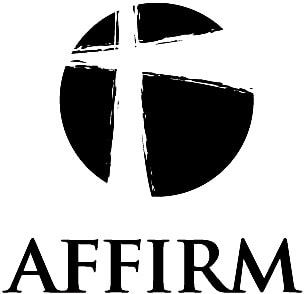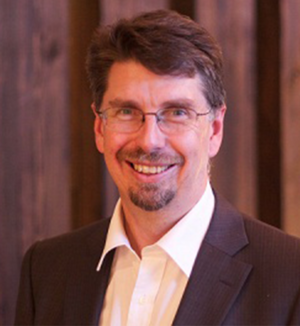|
by Bryden Black, Easter 2018
First impressions of this documentary (that is what it calls itself) are that it is first rate, well produced, and with a suitably beguiling sound track (music by Ludovico Einaudi, by any chance). As far as the medium of ‘talking heads’ go, it seeks to present a biblical case for at least same-sex blessings and ideally for same-sex marriage. Its avowed audience furthermore are those who seek themselves to acknowledge a high view of biblical authority. Does it achieve its goals? Apart from dispelling the usual miscues sometimes/often paraded in these discussions (e.g. the story of Sodom and Gomorrah, Gen 19), frankly, in my opinion, no; it fails. Not only did we not actually hear new ground being broken here, the old arguments assembled via an array of interviewees continue finally not to convince. And it fails to convince for a number of reasons, some specifically and others cumulatively. We shall take some specific reasons first. The full article can be downloaded here.
0 Comments
11 May 2018  Response to the Interim Report of the Working Group I’m not certain whether this “accommodation” is “beautiful” or not. It is certainly an accommodation. That is to say, it is an organizational, and therefore political, solution to a perceived human problem. And as such, it might indeed have much to commend it (e.g. Orders of Consecrated Life; Respectful Climate). Whether it is also an appropriate and due Church solution - that is something else again, entirely. From the Staff - A Story of Encouragement at God's marvellous provision!
We decide these things can probably start in June or July while the situation may have changed by people getting food from their farms. But you know what happened, I forgot to correspond our big outreach beofre Easter! We had invited people from the Cathedral of Holy Spirit in Dodoma, people from Mpwapwa and people from Iringa and Manyoni. All the old DCT were invited to come and evangelize and see our worker! But you know what? We sent the invitation the end of December, but sadly while transferring the outreach from March 23-26 to August, we forgot end to inform them! So today without our knowledge we started receiving teams and choirs here in Kondoa as the plan was outreach for Kondoa Town! So many people from far away as Iringa came today! But you what we did not have was food to feed them or any money to hold the outreach! Both Pastor Kaka and I panicked! AFFIRM recognizes that there is a strong desire for change to allow people in life long committed Gay relationships to be ordained. While we cannot agree with this we would encourage those who seek this change to set up their own structure including being able to retain their buildings. Our concern is not to block the revisionist approach. Justice demands that no one be forced to act against their conscience. This cuts both ways. Hence our desire to see that those who seek change are given the freedom to do so without forcing others to comply.
AFFIRM held a number of meetings about possible structures culminating in a meeting in Christchurch where all of the comments and findings were presented and then preferences agreed upon. The clear preferences for all the meetings is that we would stay as we are and not go ahead with the recommendations of the "A Way Forward" report. If however this does not happen the following are our offers to the new Commission. Former NZCMS National Director Rev Michael Lawrence writes:
A Long Look Back... Two important issues regarding family life in Aotearoa New Zealand arise out of Motion 30, and the “A Way Forward”, “He Anga Whakamua”, “Na Sala ki Liu” Working Group Report. Firstly, the re-definition of marriage and secondly, and consequentially, the birth or the adoption of children into a same-sex marriage. "The longer you can look back, the farther you can look forward” is a statement attributed to Winston Churchill and it is an appropriate guideline as the Anglican Church steps into the future. ACNS, by Gavin Drake
The provincial synod of the Anglican Church of Southern Africa has voted against the introduction of blessing services for same-sex marriages. The motion, from the Diocese of Saldanha Bay, required a simple majority in all three houses of the synod (laity, clergy and bishops) along with an overall two-thirds majority of the whole synod. But it was rejected in all three houses and failed to get anywhere near the two-thirds overall majority. Full article 1. We gathered as Anglican Primates to pray and consider how we may preserve our unity in Christ given the ongoing deep differences that exist among us concerning our understanding of marriage.
2. Recent developments in The Episcopal Church with respect to a change in their Canon on marriage represent a fundamental departure from the faith and teaching held by the majority of our Provinces on the doctrine of marriage. Possible developments in other Provinces could further exacerbate this situation. 3. All of us acknowledge that these developments have caused further deep pain throughout our Communion. In the latest issue of Latimer Focus, the magazine of the Latimer Fellowship (an Affiliate of AFFIRM), Michael Hewit (former Executive Officer of AFFIRM) has written an article about the recent past and current experience of what was the West Hamilton Parish.
The article can be found at http://www.latimer.org.nz/wp-content/uploads/Issue-36-West-Hamilton-pari.... |
Archives
April 2024
Categories
All
|


 RSS Feed
RSS Feed
